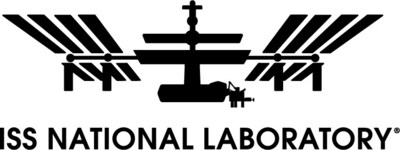ISS National Lab Plays Key Role in Advancing
Startup's Sensor Technology
KENNEDY
SPACE CENTER, Fla., May 22, 2024
/PRNewswire/ -- Using satellite-based hyperspectral sensors that
can capture images of Earth beyond the visible light we can see
with our eyes, startup Orbital Sidekick provides valuable global
monitoring services to customers around the world. So far, the
company has launched five commercial satellites, two of which went
up in March, and has plans to launch a sixth later this year.
Co-founder and CEO Dan Katz
attributes much of the company's success to leveraging the
International Space Station (ISS) National Laboratory to test its
new sensor technology.

Hyperspectral imaging can reveal the presence of specific
chemicals and materials in an area, providing important insights
into things like pipeline leaks, crop health, wildfire risk, and
materials for mining. To test its new hyperspectral sensor
technology, Orbital Sidekick launched its sensor to the ISS, where
it was installed on the Nanoracks External Platform (NREP) mounted
to the exterior of the orbiting laboratory.
An article in the latest issue of Upward, official
magazine of the ISS National Lab, tells the story of Orbital
Sidekick and what's possible through research and technology
development on the space station. Katz commented on the value of
the company's ISS research in Upward, saying, "It allowed us
to focus our resources on what's really driving value for our
company, which is our intelligence platform, analytics engine, and
product development for our end user—that's what's important for
our commercialization effort. The mission was wildly successful and
really set the table for everything we're doing today with our
commercial satellites."
Following its ISS National Lab-sponsored investigation, Orbital
Sidekick raised nearly $50 million in
investment dollars and signed more than a dozen large energy
companies for pipeline monitoring services. The company plans to
expand its satellite constellation to include 14 satellites,
allowing Orbital Sidekick to monitor millions of miles of pipeline
around the globe on a weekly basis.
See how Orbital Sidekick's space station research was a
springboard for the company's success in the Upward feature,
"Sensors, Satellites, and Sidekicks."
To download a high-resolution photo for this
release, click here.
About the International Space Station (ISS) National
Laboratory:
The International Space Station (ISS) is a
one-of-a-kind laboratory that enables research and technology
development not possible on Earth. As a public service enterprise,
the ISS National Laboratory® allows researchers to
leverage this multiuser facility to improve quality of life on
Earth, mature space-based business models, advance science literacy
in the future workforce, and expand a sustainable and scalable
market in low Earth orbit. Through this orbiting national
laboratory, research resources on the ISS are available to support
non-NASA science, technology, and education initiatives from U.S.
government agencies, academic institutions, and the private sector.
The Center for the Advancement of Science in Space™ (CASIS™)
manages the ISS National Lab, under Cooperative Agreement with
NASA, facilitating access to its permanent microgravity research
environment, a powerful vantage point in low Earth orbit, and the
extreme and varied conditions of space. To learn more about the ISS
National Lab, visit our website.
As a 501(c)(3) nonprofit organization, CASIS accepts corporate
and individual donations to help advance science in space for the
benefit of humanity. For more information, visit
our donations page.
|
Media
Contact:
|
Patrick
O'Neill
|
|
904-806-0035
|
|
PONeill@ISSNationalLab.org
|
|
|
|
International Space Station (ISS) National
Laboratory
|
|
Managed by the Center
for the Advancement of Science in Space, Inc. (CASIS)
|
|
6905 N. Wickham Rd.,
Suite 500, Melbourne, FL 32940 • 321.253.5101 •
www.ISSNationalLab.org
|
|
|
|
|
 View original content to download
multimedia:https://www.prnewswire.com/news-releases/satellite-based-sensors-provide-valuable-data-for-pipeline-monitoring-crop-production-and-more-302153233.html
View original content to download
multimedia:https://www.prnewswire.com/news-releases/satellite-based-sensors-provide-valuable-data-for-pipeline-monitoring-crop-production-and-more-302153233.html
SOURCE International Space Station National Lab